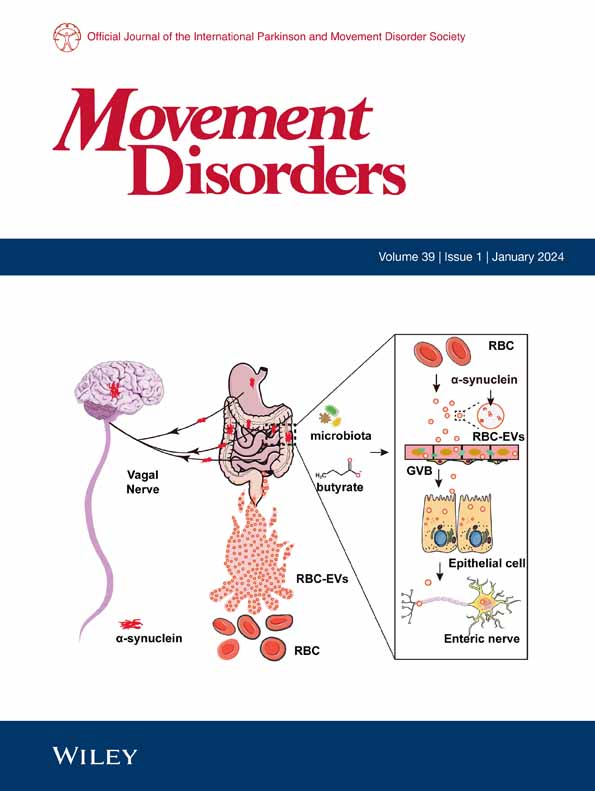Evidence of Involvement of the Calcitonin Gene‐Related Peptide in Restless Legs Syndrome
Maria P. Mogavero, Mojibola Fowowe, Akeem Sanni, Mona Goli, Giuseppe Lanza, Francesca L'Episcopo, Luigi Ferini‐Strambi, Yehia Mechref, Raffaele Ferri
求助PDF
{"title":"Evidence of Involvement of the Calcitonin Gene‐Related Peptide in Restless Legs Syndrome","authors":"Maria P. Mogavero, Mojibola Fowowe, Akeem Sanni, Mona Goli, Giuseppe Lanza, Francesca L'Episcopo, Luigi Ferini‐Strambi, Yehia Mechref, Raffaele Ferri","doi":"10.1002/mds.30125","DOIUrl":null,"url":null,"abstract":"BackgroundRestless legs syndrome (RLS) is a common sensory‐motor disorder characterized by an urge to move the legs, often with unpleasant sensations, particularly during rest. Current treatments include iron supplementation, dopamine agonists, and opioids, but new therapeutic approaches are needed. The dysfunction of the A11 nucleus, which modulates dopaminergic transmission to the spinal cord, is thought to play a role in RLS pathophysiology. Calcitonin gene‐related peptide (CGRP), which is involved in pain modulation, may interact with A11 pathways, suggesting a role in RLS.ObjectivesThis study aimed to assess the involvement of CGRP in RLS by determining if CGRP‐related proteins are overexpressed in RLS patients.MethodsA cross‐sectional study was conducted with 17 drug‐free RLS patients (mean age 55.8 years) and 17 age‐ and gender‐matched controls. Serum samples were analyzed using liquid chromatography‐parallel reaction monitoring‐tandem mass spectrometry (LC‐PRM‐MS/MS) to identify and quantify CGRP‐related proteins. Principal component analysis (PCA) was used to differentiate between groups.ResultsPCA showed clear differentiation between RLS and control groups. Among 13 identified CGRP‐related proteins, 10 were dysregulated in RLS patients: 8 were upregulated, and 2 were downregulated, among them notable proteins such as S100A12, ADM, SRSF6, and ADM2.ConclusionsThis study indicates the significant involvement of CGRP and related proteins in RLS. This suggests these proteins may play roles in various aspects of the disorder. Further research is required to validate these findings and explore their clinical implications, including development of new treatment options that specifically address CGRP pathways. © 2025 The Author(s). <jats:italic>Movement Disorders</jats:italic> published by Wiley Periodicals LLC on behalf of International Parkinson and Movement Disorder Society.","PeriodicalId":213,"journal":{"name":"Movement Disorders","volume":"45 1","pages":""},"PeriodicalIF":7.4000,"publicationDate":"2025-01-30","publicationTypes":"Journal Article","fieldsOfStudy":null,"isOpenAccess":false,"openAccessPdf":"","citationCount":"0","resultStr":null,"platform":"Semanticscholar","paperid":null,"PeriodicalName":"Movement Disorders","FirstCategoryId":"3","ListUrlMain":"https://doi.org/10.1002/mds.30125","RegionNum":1,"RegionCategory":"医学","ArticlePicture":[],"TitleCN":null,"AbstractTextCN":null,"PMCID":null,"EPubDate":"","PubModel":"","JCR":"Q1","JCRName":"CLINICAL NEUROLOGY","Score":null,"Total":0}
引用次数: 0
引用
批量引用


